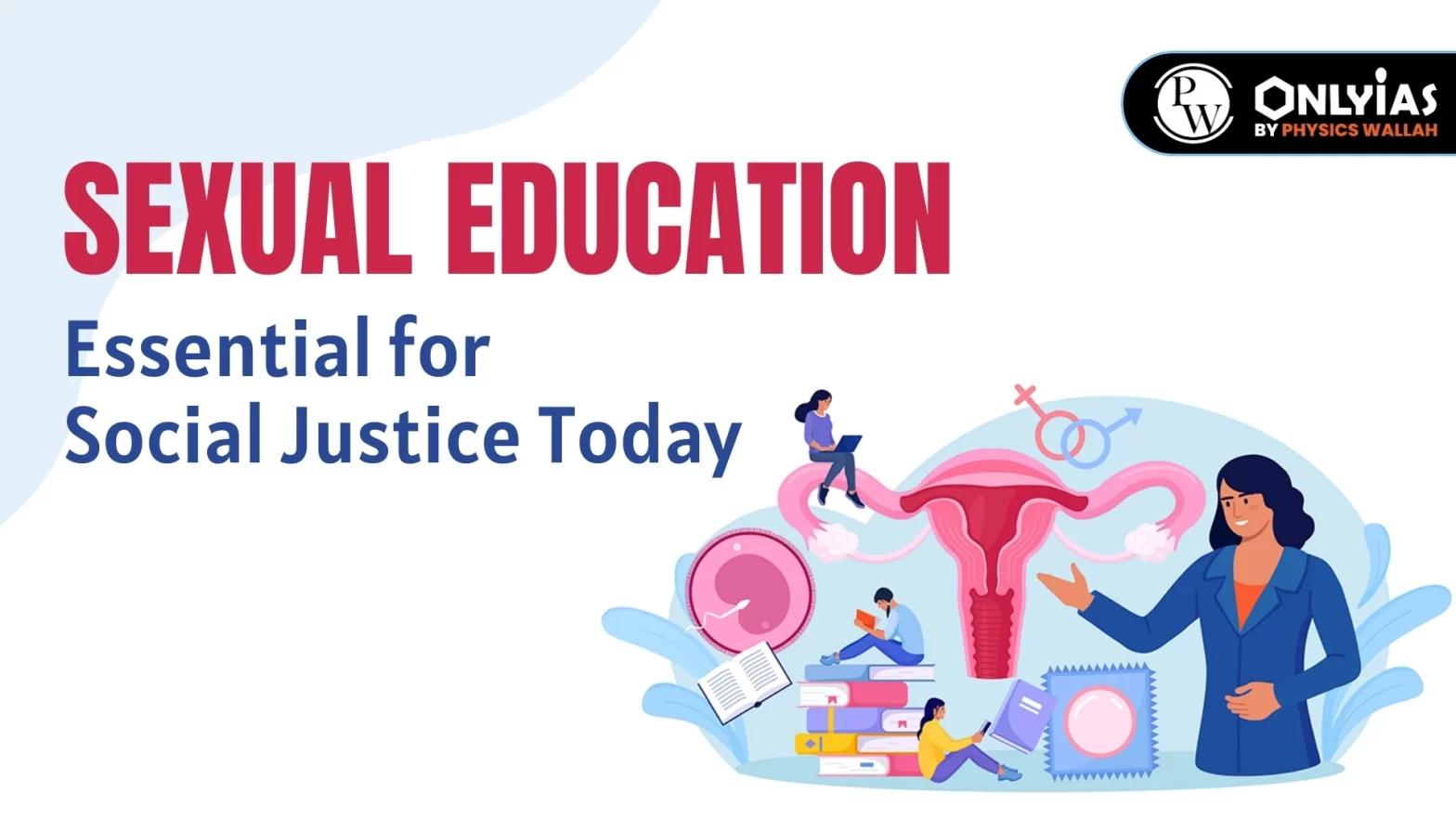Context: This article is based on an Editorial “Social justice, sexual education, the need of our times” Which was published in the Hindu. There are frequent reports in the media on the caste conflicts among adolescents/young adults as well as consensual sexual relationships between adolescents/young adults of different castes inviting criminal penalties and action.
- There are various challenges regarding Sexual education in the Indian Education System.
| Relevancy for Mains: Is the integration of sexual education into the Indian curriculum crucial for fostering social justice? |
- Education for Democracy:
- Challenge: India’s society has deep divisions, making it hard to have equal rights for everyone.
-
- Some people may discriminate against minorities, which goes against the idea of democracy.
-
- Need: Enhancing empathetic understanding of others is required for sustaining democratic institutions.
- Critical Thinking in Education:
-
- Goal: Teaching kids to think critically helps challenge their own beliefs and understand others.
- Challenge: Children generally look to elders for help. Parents and the elderly try to keep children comfortable and in the process, children learn that they can command others.
- Need: Instead of commanding others, children should learn to seek help, and it’s not a sign of weakness.
- Recognizing Vulnerability:
-
- Shift in Adolescence: As kids grow up, they realize vulnerability is not just about physical weakness but also about social and economic factors.
- Need: Understanding that some people face challenges due to their background is a crucial step in achieving social justice.
- Children need to be aware by elders and teachers that helping is a responsibility and it makes us more humane and sociable.
- Sexual Education as Social Justice:
-
- Need: More than providing knowledge about healthy sexual development and sex education, sexual education prepares students to respect gender identities and interpersonal relationships.
- Teaching about consent and personal boundaries is crucial to preventing sexual abuse.
- It develops a deeper understanding of other gender identities (LGBTQA+).
- Sexual education in school will transform gender relationships at home and in society and will be the most desirable outcome.
-
- Teachers can play a vital role in social justice education. Teachers need to understand their role in democratic education and find better ways to teach social justice.
- Government Support Needed:
-
- Initiatives: The Adolescent Reproductive and Sexual Health Strategy (ARSH) (2005) and the National Adolescent Health Programme (Rashtriya Kishore Swaasthya Karyakram or RKSK) are two recent initiatives by the Union government.
- Part of School Curriculum: If sexual education becomes a part of the school curriculum, it can help children have healthier relationships.
- Many international and national bodies have created curricula, reading materials and teaching aids. All that is needed is to train teachers and implement sexual education as a compulsory part of the school curriculum.
- Legal Aspects and Curriculum:
-
- Current Situation: Courts in India are discussing the legal aspects of adolescent relationships, and sexual education is not widely taught in schools.
- Need: Proper training for teachers and sexual education to address the existing gaps.
- Recent Action: The government of Tamil Nadu has formed a committee to address discrimination in schools and colleges.
Conclusion
Children, even in the pre-adolescent stage, have a natural curiosity to know more about sex. There is a need to provide them the right type of sexual education. It is a prudent strategy to equip children to have a safe and healthy sexual life and to respect and accommodate gender differences. For a healthy democratic society, there is a need for social justice education and sexual education.
![]() 1 Dec 2023
1 Dec 2023

